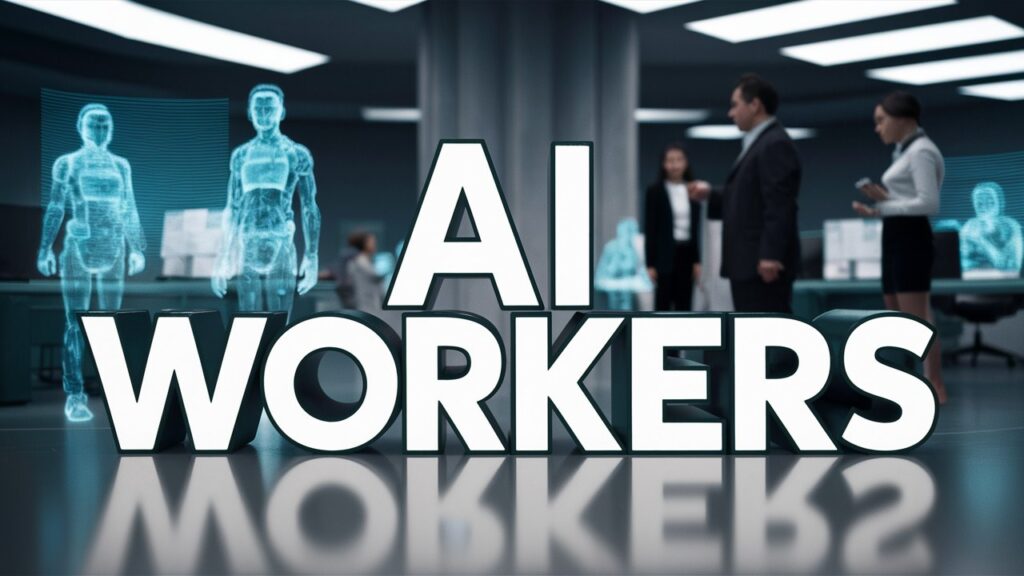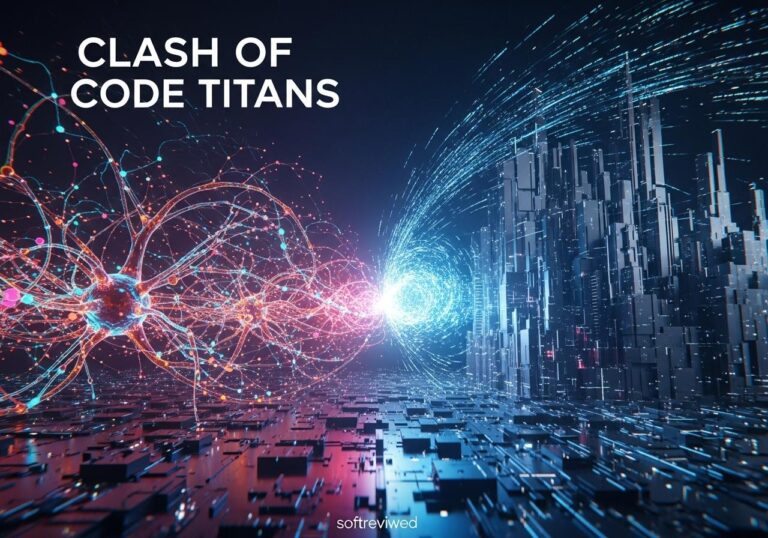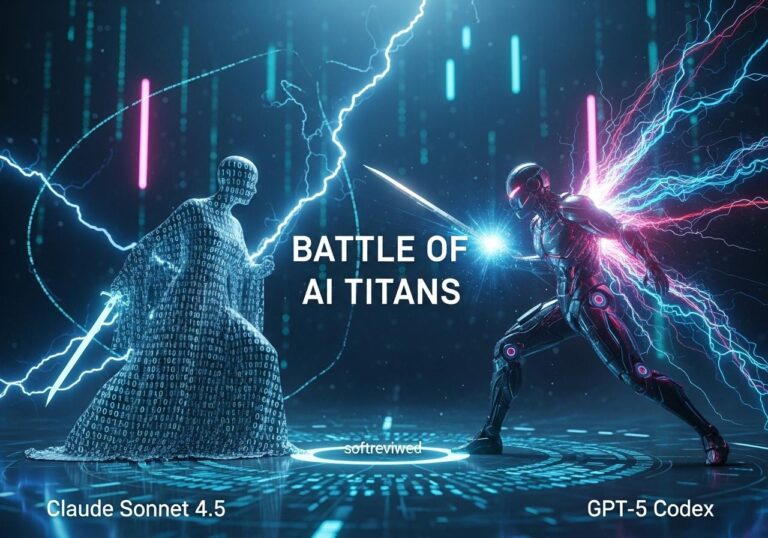Digital Workers: Transforming the Workplace
AI-powered digital workers are revolutionizing how businesses operate, automate tasks, and drive success. Let’s explore the key aspects of this transformation.
Digital Workers Transform Tasks
AI-powered digital workers automate mundane tasks, retain employees, and drive organizational success.
Training is Key
To fully realize the benefits, digital workers must understand business lingo, workflows, and guardrails through employee feedback and quality assurance.
Effective Communication
Employees must learn to interact with digital workers by providing the right information, enabling focus on important tasks and improving job satisfaction.
Ethical Stewardship
Organizations must provide responsible stewardship of customer data and ethical AI training for employees to mitigate risks and ensure successful implementation.
Digital Worker Integration
By adopting digital workers, businesses can free employees to focus on operations, enter an age of innovation, and remain competitive in the labor market.
Enhanced Productivity
AI-driven digital workers can give employees time back in their day, leading to increased productivity and improved operational efficiency.
In the rapidly advancing world of artificial intelligence, a groundbreaking development has emerged that promises to reshape the landscape of business automation. Lattice, a prominent player in the AI industry, has recently unveiled its latest innovation: AI-powered digital workers. This cutting-edge technology is set to transform the way businesses operate, streamline processes, and boost productivity. Let’s explore the implications of this revolutionary advancement and its potential impact on the future of work.
The Rise of AI-Powered Digital Workers

AI-powered digital workers represent a significant leap forward in business automation technology. These sophisticated software entities are designed to handle a wide range of routine tasks traditionally performed by human employees. By leveraging advanced machine learning algorithms and natural language processing capabilities, these digital workers can seamlessly integrate into existing business workflows, offering unprecedented levels of efficiency and accuracy.
Key Features of AI-Powered Digital Workers
- Adaptability: Capable of learning and adapting to various business processes
- 24/7 Availability: Operate round-the-clock without fatigue or breaks
- Scalability: Easily scalable to meet changing business demands
- Consistency: Perform tasks with unwavering accuracy and precision
- Integration: Seamlessly integrate with existing software systems
Transforming Business Operations
The introduction of AI-powered digital workers has the potential to revolutionize how businesses operate across various industries. By automating routine and repetitive tasks, companies can redirect their human workforce towards more strategic, creative, and value-added activities.
Areas of Impact
- Customer Service: AI-powered digital workers can handle customer inquiries, process requests, and provide support around the clock.
- Data Processing: Automated data entry, analysis, and reporting can significantly reduce errors and improve decision-making.
- Human Resources: Digital workers can streamline recruitment processes, onboarding, and employee data management.
- Finance and Accounting: Automating financial transactions, reconciliations, and report generation can enhance accuracy and compliance.
- Supply Chain Management: AI-powered workers can optimize inventory management, demand forecasting, and logistics planning.
The Benefits of AI-Powered Digital Workers
The adoption of AI-powered digital workers offers numerous advantages for businesses seeking to optimize their operations and stay competitive in an increasingly digital landscape.
Increased Efficiency and Productivity
By automating routine tasks, AI-powered digital workers can significantly boost overall productivity. They can process vast amounts of data and perform complex calculations at speeds far beyond human capabilities, allowing businesses to accomplish more in less time.
Cost Reduction
Implementing AI-powered digital workers can lead to substantial cost savings for businesses. While there may be initial investment costs, the long-term benefits include reduced labor expenses, minimized errors, and improved resource allocation.
Enhanced Accuracy and Consistency
Unlike human workers, AI-powered digital workers are not susceptible to fatigue or distractions. This results in consistently high-quality output and minimizes the risk of errors in critical business processes.
Scalability and Flexibility
AI-powered digital workers can be easily scaled up or down to meet changing business needs. This flexibility allows companies to adapt quickly to market fluctuations and seasonal demands without the complexities of hiring or laying off staff.
24/7 Availability
Digital workers can operate around the clock, ensuring that critical business processes continue even outside of traditional working hours. This capability is particularly valuable for global businesses operating across different time zones.
Challenges and Considerations
While the benefits of AI-powered digital workers are substantial, their implementation is not without challenges. Businesses must carefully consider several factors before integrating this technology into their operations.
Workforce Impact
The introduction of AI-powered digital workers may lead to significant changes in workforce dynamics. While some job roles may become obsolete, new opportunities for human workers to focus on higher-value tasks and strategic initiatives will likely emerge.
Technical Integration
Implementing AI-powered digital workers requires careful integration with existing systems and processes. Companies must ensure compatibility and seamless data flow between digital workers and other software applications.
Data Security and Privacy
As AI-powered digital workers handle sensitive business data, robust security measures must be in place to protect against potential breaches or unauthorized access.
Ethical Considerations
The use of AI in business processes raises ethical questions regarding decision-making, accountability, and the potential for bias. Companies must establish clear guidelines and oversight mechanisms to address these concerns.
Preparing for the Future of Work
As AI-powered digital workers become more prevalent, businesses and employees must adapt to a changing work environment. Here are some strategies for navigating this transition:
For Businesses
- Invest in Reskilling and Upskilling: Provide training programs to help employees develop skills that complement AI technologies.
- Foster a Culture of Innovation: Encourage employees to embrace new technologies and contribute ideas for process improvement.
- Develop Clear AI Governance Policies: Establish guidelines for the ethical use of AI and digital workers within the organization.
- Prioritize Change Management: Implement comprehensive change management strategies to ensure smooth adoption of AI-powered digital workers.
For Employees
- Embrace Lifelong Learning: Stay current with emerging technologies and continuously update your skill set.
- Focus on Uniquely Human Skills: Develop skills in areas such as creativity, emotional intelligence, and complex problem-solving that are difficult for AI to replicate.
- Adapt to New Roles: Be open to evolving job responsibilities and opportunities that arise from AI integration.
- Collaborate with AI: Learn to work alongside AI-powered digital workers to enhance your productivity and effectiveness.
The Future Landscape of Business Automation
As AI-powered digital workers continue to evolve and improve, their impact on business automation is expected to grow exponentially. The global AI server market, which supports these advanced technologies, is projected to reach a staggering $187 billion in 2024, with a remarkable growth rate of 69%.
This rapid expansion indicates a strong trend towards AI adoption across industries, with AI-powered digital workers playing a central role in shaping the future of work. As businesses increasingly recognize the potential of this technology to drive efficiency, reduce costs, and improve competitive advantage, we can expect to see widespread implementation in the coming years.
Emerging Trends in AI-Powered Business Automation
- Hyper-Automation: The combination of AI, machine learning, and robotic process automation to automate complex end-to-end business processes.
- Cognitive AI: Advanced AI systems capable of human-like reasoning and decision-making in specific domains.
- Conversational AI: Natural language processing advancements enabling more sophisticated human-AI interactions.
- Edge AI: AI processing capabilities deployed at the edge of networks for faster, more efficient automation in real-time applications.
How Can AI-Powered Brain-Computer Interfaces Enhance Business Automation Processes?
AI-powered brain-computer interfaces are revolutionizing business automation processes by enabling direct communication between human thoughts and machines. This innovative technology streamlines workflows, enhances decision-making speed, and optimizes resource allocation. By integrating ai braincomputer interfaces, companies can significantly boost productivity and create a more adaptive workplace environment.
Conclusion
The introduction of AI-powered digital workers by Lattice marks a pivotal moment in the evolution of business automation. As this technology continues to mature and proliferate, it has the potential to dramatically reshape the business landscape, driving unprecedented levels of efficiency, productivity, and innovation.
While challenges and considerations remain, the benefits of AI-powered digital workers are undeniable. Businesses that embrace this technology and effectively integrate it into their operations stand to gain a significant competitive advantage in an increasingly digital world.
As we look to the future, it’s clear that AI-powered digital workers will play a crucial role in shaping the way we work and do business. By staying informed, adaptable, and proactive in the face of these changes, both businesses and individuals can position themselves to thrive in this new era of AI-driven automation.
The journey towards a more automated and efficient business world has only just begun, and AI-powered digital workers are leading the way. As we continue to explore and harness the potential of this groundbreaking technology, we can look forward to a future where human creativity and AI capabilities work in harmony to drive progress and innovation across all sectors of the global economy. These advancements will empower businesses to streamline operations, reduce costs, and improve decision-making through smarter, data-driven insights. With the aid of platforms like Google AI developer tools, organizations can seamlessly integrate cutting-edge AI solutions into their workflows, accelerating the pace of transformation. Ultimately, the collaboration between AI and human expertise will unlock new opportunities and reshape industries in ways we are only beginning to imagine.
AI’s Transformative Impact on Business and Economy
This chart illustrates key projections and statistics about AI’s influence on various aspects of business and the economy, showcasing its potential for growth and transformation across industries.







